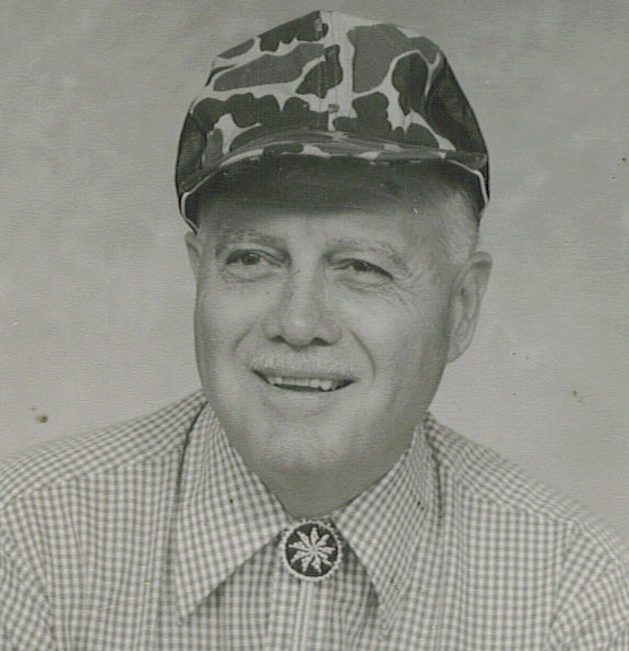Charley Dickey (1921-1998) was one of the last of what might be described as a generalist in terms of coverage of outdoor-related topics. For many years one of America’s best known and loved sporting scribes, he wrote on subjects ranging from deer hunting to trout fishing, outdoor photography to humor. His work was invariably infused with warmth and wit, homespun philosophy, and a fine leavening of common sense.
Dickey had an uncanny ability to get to the heart of things with a few well-chosen words and homespun philosophy. He could find humor in the simplest of subjects and often poked fun at himself, and nowhere was that more obvious than when it came to his consuming passion—bird hunting.
“My most congenial behavior,” he reckoned, “always seems to happen when I’m with a person who owns a lot of quail land.”
In a similarly humorous vein, he spoke for every befuddled bird hunter in the midst of a mad search for missing paraphernalia on the eve of opening day when he wrote: “I’ve never known an outdoorsman who owned all the gear he thought he needed. Even if he owns it, the odds are that he can’t find it.”
Similarly, anyone who can’t identify with his thoughts on fences—“If a barbed-wire fence is going to break, it will do so when you are exactly astraddle it”—hasn’t spent a lot of time hunting in cattle country.
A staunch son of the Southern soil, Dickey grew up in East Tennessee and enjoyed a boyhood chock-full of adventure—hunting, fishing, camping, and even spending a summer, with a friend, piloting a flat-bottomed boat dubbed Sea Biscuit hundreds of miles down the Holston and Tennessee rivers. Other summers during his teens he held jobs as diverse as harvesting wheat in Kansas, serving as a soda jerk, operating a lathe, digging irrigation ditches in Colorado, and unloading railroad cars. During his early college years, Charley learned to fly a plane.
The latter skill figured prominently in his World War II service, when he flew Grumman Avengers off the decks of naval carriers in the Pacific, the U.S.S. Lexington and U.S.S. Enterprise. Considered a war hero of some note, Charley sank one of the largest battleships in the Japanese navy and earned the Navy Cross and three Distinguished Flying Crosses. He also saw flight duty during the Korean War.
Prior to his second stint in the Navy, Dickey obtained a degree in geology at the University of Tennessee and, after two years as an assistant state geologist, moved into journalism.
His work increasingly focused on the outdoors. During the late 1950s, throughout the 1960s, and into the 1970s, he wrote freelance material, worked for a period for Winchester, became a field representative for the Sporting Arms and Ammunition Manufacturers’ Institute (SAAMI), and then served as the first executive director of the National Shooting Sports Foundation (NSSF). In 1972, with the NSSF solidly established, he left the organization and devoted the remaining quarter century of his life to full-time freelance writing and photography.
Amazingly productive, Charley wrote, co-authored, or made major contributions to more than a dozen books. The most important and enduring of these focus on bird hunting (Bobwhite Quail Hunting and Dove Hunting) or comprise selections of his magazine columns and stories (Movin’ Along with Charley Dickey, Opening Shots and Parting Lines, and Backtrack). He contributed the opening chapter to one of the finest anthologies devoted to hunting bobwhite, Call of the Quail; was a fixture in the pages of major national magazines, along with regional publications such as Georgia Sportsman and Southern Outdoors; served as a columnist for the Tallahassee Democrat newspaper; and under the pen name Sam Cole wrote the back-page column for Petersen’s Hunting.
A heralded photographer, Dickey developed a number of “tricks” for getting shots of covey rises, and over the course of his career he won dozens of major awards. In 1991 the Southeastern Outdoor Press Association recognized him as the first recipient of its Lifetime Achievement Award.
His writings touch the pulse of the serious hunter in a meaningful, memorable fashion. What quail hunter can argue with his suggestion that a game hog “overshooting a covey is worse than an egg-sucking dog”? Or who among us, exasperated with a dog which has munched far too enthusiastically on a retrieved quail, can gainsay Dickey’s conclusion that dogs chew or eat quail “as a reminder of who is really running the show”?
A little gem from fairly early in his career, written for Southern Outdoors, typifies his magic with words. Entitled “What Is a Quail Hunter?”, Dickey captures the essence of such individuals in nine mesmerizing paragraphs laced with self-deprecation and keen observation, which form hallmarks of his writing.
His closing thoughts are particularly insightful.
“The quail hunter is a child of Nature with a hopeless one-track mind,” he wrote, “but you know you’ll always like him. He’s a simple and kindly man who asks no more of life than that the birds fly fast, the dogs hold tight, and everything has a sporting chance to live or die.”
Small wonder Charley Dickey’s friends invariably called him “Chum.” He was a man any of us would have been proud to have as a chum. His writing leaves posterity no doubt that he was a vicarious pal of the first order; a boon companion for armchair adventures; and someone with whom it would have been a singular privilege to share a hunt, a cheery fire, or a toddy during an evening session of telling of tales.
Make a point to devote a bit of summertime reading to his books. I would especially recommend the three Dickey anthologies published by Amwell Press—Backtrack, Movin’ Along, and Opening Shots and Parting Lines. You won’t be disappointed.

